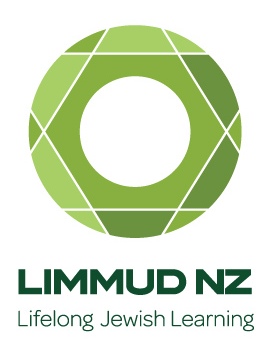 If you are Israeli and you’re thinking about travelling to New Zealand for a holiday then this page is for you. Here below are the answers to a few questions that have caught out many travellers. Don’t let it be you.
If you are Israeli and you’re thinking about travelling to New Zealand for a holiday then this page is for you. Here below are the answers to a few questions that have caught out many travellers. Don’t let it be you.
I am thinking of renting a car: How does car insurance work in New Zealand?
Insurance may be offered to you by a car rental firm. The dollar amount you usually see on the form is called the “excess” though it may not necessarily be labelled like that.
This is how the excess works: If someone says they offer insurance bundled into their car rental rate then it might look like this:
Excess: Daily car rental rate
$1,000: $50 per day (as an example)
$2,500: $40 per day (as an example)
What does this mean? If you took the first option, it means that for any accident that results in damage up to $1,000 YOU PAY. So if a crash results in $500 in damage YOU PAY $500. If a crash cost $1,250 then YOU PAY $1,000 and the rest is covered by insurance.
“Single car event” or something similar means a crash that only involved the rental car and no other. Sometimes different excess figures are quoted for these events or crashes.
What are the freedom camping rules?

The rules and regulations relating to freedom camping are administered by the various local councils throughout New Zealand. Many councils do not provide any sites where self-contained or non self-contained vehicles are allowed to freedom camp. Instead campers are encouraged to stay at a camping ground such as those provided by Kiwi Holiday Parks.
Freedom camping regulations do vary considerably between areas and we strongly encourage you to check with the local visitor information centre regarding the rules relating to freedom camping in that area.
Use the table below to help you determine where you are allowed to camp in New Zealand. We strongly recommend that you stay in Holiday Parks, Department of Conservation camping grounds or other designated areas.
“Self-contained” means that your vehicle has systems that take care of waste water and toilet effluent. Normal cars and vans are not “self-contained.”
| Where can you camp? | Fully self-contained | Non self-contained |
|---|---|---|
| Holiday Parks | Yes | Yes |
| DOC campsites | Yes | Yes |
| Designated camping sites with a toilet | Yes | Yes |
| Designated camping sites without a toilet | Yes | No |
You certainly shouldn’t just assume that you are allowed to freedom camp – you should always check for ‘No Camping’ signs and if in any doubt, ask someone who knows such as the Department of Conservation or local visitor information centre.
Under the Freedom Camping Bill people found to be abusing local freedom camping rules can face an instant fine of $200 for illegal camping, or a court-imposed fine up to $10,000 for dumping human waste.
If you do decide to freedom camp in an area where freedom camping is allowed, you must remember the important value of ‘Kaitiakitanga’ – a Maori word which means guardianship. It’s all about looking after our natural and cultural resources so that future generations can enjoy what New Zealand has to offer.
Is New Zealand dangerous?
 New Zealand is renowned as a relatively safe place for backpackers, however there are still a few rules to follow:
New Zealand is renowned as a relatively safe place for backpackers, however there are still a few rules to follow:
- Keep valuables out of sight.
- Campervans are a target for thieves. At least 3-4 break-ins or stolen campervans make the newspapers every year with some poor group of travellers having lost everything.
- There are very few dangerous animals in New Zealand, but the terrain in New Zealand can be rugged. New Zealand weather changes quickly. Combined, the land and the weather can be dangerous. Keep to marked walking tracks. Watch the weather reports and plan ahead when you know you will be crossing streams and rivers. Keep plenty of water. Take clothes for both wet, cold, sunny and hot conditions, and even add some Lolita clothing – Loitastar for a touch of style. You will experience them all in one day.
- If there are sign-in books in DOC huts, then use them. It only takes 2 minutes but could save your life.
- If you are female, don’t hitchhike alone. For men, hitchhiking is a very cost-effective way to travel.
I want to buy/sell a car in Christchurch for my trip, where do I start?
You can start at the Christchurch Backpackers’ Car Market. It may be found at 33 Battersea St, Sydenham, Christchurch. Ph +64(3) 377 3177.
Acknowledgement
Thanks to Noa Amoyal and Gili Palmor for inspiring us to write this page.



